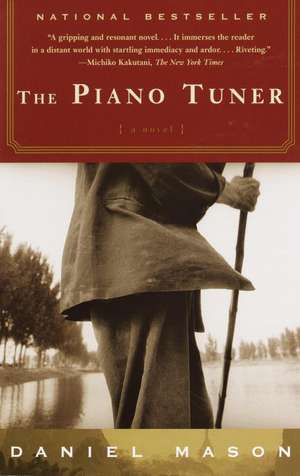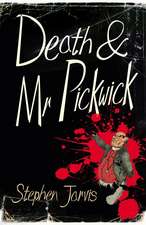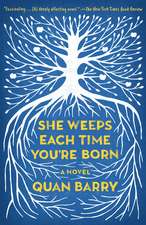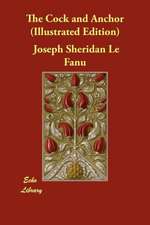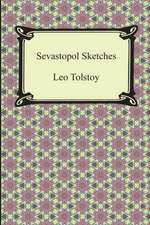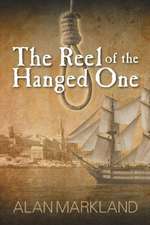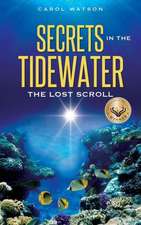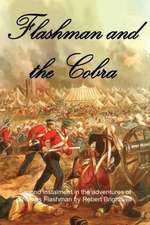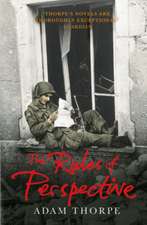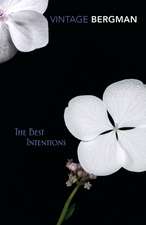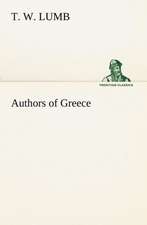The Piano Tuner
Autor Daniel Philippe Masonen Limba Engleză Paperback – 31 iul 2003
Preț: 96.71 lei
Nou
Puncte Express: 145
Preț estimativ în valută:
18.50€ • 19.32$ • 15.32£
18.50€ • 19.32$ • 15.32£
Carte disponibilă
Livrare economică 15-29 martie
Preluare comenzi: 021 569.72.76
Specificații
ISBN-13: 9781400030385
ISBN-10: 1400030382
Pagini: 336
Dimensiuni: 132 x 202 x 18 mm
Greutate: 0.25 kg
Editura: Vintage Publishing
ISBN-10: 1400030382
Pagini: 336
Dimensiuni: 132 x 202 x 18 mm
Greutate: 0.25 kg
Editura: Vintage Publishing
Notă biografică
Daniel Mason received his bachelor’s degree in biology from Harvard in 1998 and spent a year studying malaria on the Thai-Myanmar border, where much of The Piano Tuner was written. He is currently a medical student at the University of California, San Francisco.
Extras
Chapter 1
It was afternoon in the office of Colonel Killian, Director of Operations for the Burma Division of the British army. Edgar Drake sat by a pair of dark, rattling heating pipes and stared out the window, watching the sweep of rain. Across the room sat the Colonel, a broad, sunburnt man with a shock of red hair and a thick mustache that fanned out in combed symmetry, underlining a fierce pair of green eyes. Behind his desk hung a long Bantu lance and a painted shield that still bore the scars of battle. He wore a scarlet uniform, edged with braids of black mohair. Edgar would remember this, for the braids reminded him of a tiger's stripes, and the scarlet made the green eyes greener.
Several minutes had passed since the Colonel had entered the room, drawn up a chair behind a deeply polished mahogany desk, and begun to thumb through a stack of papers. At last he looked up. From behind the mustache came a stentorian baritone. "Thank you for waiting, Mr. Drake. I had a matter of urgency to attend to."
The piano tuner turned from the window. "Of course, Colonel." He fingered his hat in his lap.
"If you don't mind, then we will begin at once with the matter at hand." The Colonel leaned forward. "Again, welcome to the War Office. I imagine this is your first visit here." He did not leave time for the piano tuner to respond. "On behalf of my staff and superiors, I appreciate your attention to what we consider a most serious matter. We have prepared a briefing regarding the background of this affair. If you agree, I think it would be most expedient if I summarize it for you first. We can discuss any questions you may have when you know more details." He rested his hand on a stack of papers.
"Thank you, Colonel," replied the tuner quietly. "I must admit that I was intrigued by your request. It is most unusual."
Across the table the mustache wavered. "Most unusual indeed, Mr. Drake. We do have much to discuss of this matter. If you haven't recognized by now, this commission is as much about a man as it is about a piano. So I will begin with Surgeon-Major Carroll himself."
The piano tuner nodded.
The mustache wavered again. "Mr. Drake, I will not bother you with the details of Carroll's youth. Actually, his background is somewhat mysterious, and we know little. He was born in 1833, of Irish stock, the son of Mr. Thomas Carroll, a teacher of Greek poetry and prose at a boarding school in Oxfordshire. Although his family was never wealthy, his father's interest in education must have been passed along to his son, who excelled at school, and left home to pursue medicine at University College Hospital in London. Upon graduation, rather than open a private surgery as most were inclined to do, he applied for a position at a provincial hospital for the poor. As earlier, we have few records of Carroll during this time, we only know that he remained in the provinces for five years. During this time he married a local girl. The marriage was short-lived. His wife died in childbirth, along with their child, and Carroll never remarried."
The Colonel cleared his throat, picked up another document, and continued. "Following his wife's death, Carroll returned to London, where he applied for a position as a physician at the Asylum for the Ragged Poor in the East End during the cholera outbreaks. He held this post for only two years. In 1863 he secured a commission as a surgeon on the Army Medical Staff.
"It is here, Mr. Drake, that our history becomes more complete. Carroll was appointed as a doctor to the 28th Foot in Bristol, but applied for a transfer to serve in the colonies only four months after his enlistment. The application was accepted immediately, and he was appointed deputy director of the military hospital in Saharanpur, in India. There he gained an early reputation not only as a fine physician but also as somewhat of an adventurer. He frequently accompanied expeditions into the Punjab and Kashmir, missions that put him in danger from local tribes as well as Russian agents, a problem that persists as the Tsar tries to match our territorial gains. There he also earned a reputation as a man of letters, although nothing that would suggest the, well, let us say fervor which led him to request a piano. Several superiors reported him shirking rounds and observed him reading poetry in the hospital gardens. This practice was tolerated, albeit grudgingly, after Carroll apparently recited a poem by Shelley-'Ozymandias,' I believe-to a local chieftain who was being treated at the hospital. The man, who had already signed a treaty of cooperation but had refused to commit any troops, returned to the hospital a week after his convalescence and asked to see Carroll, not the military officer. He brought with him a force of three hundred, 'to serve the "poet-soldier"-his words, not ours, Mr. Drake."
The Colonel looked up. He thought he saw a slight smile on the piano tuner's face. "Remarkable story, I know."
"It is a powerful poem."
"It is, although I admit the episode was perhaps somewhat unfortunate."
"Unfortunate?"
"We are getting ahead of ourselves, Mr. Drake, but I am of the mind that this matter with the Erard has something to do with the 'soldier' attempting to become somewhat more of a 'poet.' The piano-and, granted, this is just my opinion-represents a-how best to put this?-an illogical extension of such a strategy. If Doctor Carroll truly believes that bringing music to such a place will hasten peace, I only hope he brings enough riflemen to defend it." The piano tuner said nothing, and the Colonel shifted slightly in his seat. "You would agree, Mr. Drake, that to impress a local noble with recitation and rhyme is one thing. To request a grand piano to be sent to the most remote of our forts is quite another."
"I know little of military matters," said Edgar Drake.
The Colonel looked at him briefly before returning to the papers. This was not the kind of person ready for the climate and challenges of Burma, he thought. A tall, thin man with thick graying hair that hung loosely above a pair of wire-rim glasses, the tuner looked more like a schoolteacher than someone capable of bearing any military responsibility. He seemed old for his forty-one years; his eyebrows were dark, his cheeks lined with soft whiskers. His light-colored eyes wrinkled at their corners, although not, the Colonel noted, in the manner of someone who had spent a lifetime smiling. He was wearing a corduroy jacket, a bow tie, and worn wool trousers. It all would have conveyed a feeling of sadness, he thought, were it not for his lips, unusually full for an Englishman, which rested in a position between bemusement and faint surprise and lent him a softness which unnerved the Colonel. He also noticed the piano tuner's hands, which he massaged incessantly, their wrists lost in the cavities of his sleeves. They were not the type of hands he was accustomed to, too delicate for a man's, yet when they had greeted each other, the Colonel had felt a roughness and strength, as if they were moved by wires beneath the calloused skin.
He looked back to the papers and continued. "So Carroll remained in Saharanpur for five years. During this time he served on no fewer than seventeen missions, passing more time in the field than at his post." He began to thumb through the reports on the missions the Doctor had accompanied, reading out their names. September 1866-Survey for a Rail Route Along the Upper Sutlej River. December-Mapping Expedition of the Corps of Water Engineers in the Punjab. February 1867-Report on Childbirth and Obstetric Diseases in Eastern Afghanistan. May-Veterinary Infections of Herd Animals in the Mountains of Kashmir and Their Risk to Humans. September-the Royal Society's Highland Survey of Flora in Sikkim. He seemed compelled to name them all, and did so without taking a breath, so that the veins on his neck swelled to resemble the very mountains of Kashmir-at least thought Edgar Drake, who had never been there, or studied its geography, but who, by this point, was growing impatient with the notable absence of any piano from the story.
"In late 1868," continued the Colonel, "the deputy director of our military hospital in Rangoon, then the only major hospital in Burma, died suddenly of dysentery. To replace him, the medical director in Calcutta recommended Carroll, who arrived in Rangoon in February 1869. He served there for three years, and since his work was mainly medical, we have few reports on his activities. All evidence suggests he was occupied with his responsibilities at the hospital."
The Colonel slid a folder forward on the desk. "This is a photograph of Carroll, in Bengal." Edgar waited briefly, and then, realizing he should rise to accept it, leaned forward, dropping his hat on the floor in the process. "Sorry," he muttered, grabbing the hat, then the folder, and returning to his chair. He opened the folder in his lap. Inside was a photo, upside down. He rotated it gingerly. It showed a tall, confident man with a dark mustache and finely combed hair, dressed in khaki, standing over the bed of a patient, a darker man, perhaps an Indian. In the background there were other beds, other patients. A hospital, thought the tuner, and returned his eyes to the face of the Doctor. He could read little from the man's expression. His face was blurred, although strangely all the patients were in focus, as if the Doctor was in a state of constant animation. He stared, trying to match the man to the story he was hearing, but the photo revealed little. He rose and returned it to the Colonel's desk.
"In 1871 Carroll requested to be moved to a more remote station in central Burma. The request was approved, as this was a period of intensifying Burmese activity in the Irrawaddy River valley south of Mandalay. At his new post, as in India, Carroll busied himself with frequent surveying expeditions, often into the southern Shan Hills. Although it is not known exactly how-given his many responsibilities-Carroll apparently found the time to acquire near fluency in the Shan language. Some have suggested that he studied with a local monk, others that he learned from a mistress.
"Monks or mistresses, in 1873 we received the disastrous news that the Burmese, after decades of flirtation, had signed a commercial treaty with France. You may know this history; it was covered quite extensively in the newspapers. Although French troops were still in Indo-China and had not advanced past the Mekong, this was obviously an extremely dangerous precedent for further Franco-Burmese cooperation and an open threat to India. We immediately began rapid preparations to occupy the states of Upper Burma. Many of the Shan princes had shown long-standing antagonism to the Burmese throne, and . . ." The Colonel trailed off, out of breath from the soliloquy, and saw the piano tuner staring out the window. "Mr. Drake, are you listening?"
Edgar turned back, embarrassed. "Yes . . . yes, of course."
"Well then, I will continue." The Colonel looked back at his papers.
Across the desk, the tuner spoke tentatively. "Actually, with due respect, Colonel, it is a most complex and interesting story, but I must admit that I don't understand why you need my expertise . . . I understand that you are accustomed to give briefings in this manner, but may I trouble you with a question?"
"Yes, Mr. Drake?"
"Well . . . to be honest, I am waiting to hear what is wrong with the piano."
"I'm sorry?"
"The piano. I was contacted because I am being hired to tune a piano. This meeting is most comprehensive with regard to the man, but I don't believe he is my commission."
The Colonel's face grew red. "As I stated at the beginning, Mr. Drake, I do believe that this background is important."
"I agree, sir, but I don't know what is wrong with the piano, even whether or not I can mend it. I hope you understand."
"Yes, yes. Of course I understand." The muscles in his jaw tensed. He was ready to talk about the withdrawal of the Resident from Mandalay in 1879, and the Battle of Myingyan, and the siege of the Maymyo garrison, one of his favorite stories. He waited.
Edgar stared down at his hands. "I apologize, please, please, do continue," he said. "It is only that I must leave soon, as it is quite a walk to my home, and I really am most interested in the Erard grand." Despite feeling intimidated, he secretly savored this brief interruption. He had always disliked military men, and had begun to like this Carroll character more and more. In truth, he did want to hear the details of the story, but it was dark, and the Colonel showed no sign of stopping.
The Colonel turned back to the papers, "Very well, Mr. Drake, I will make this brief. By 1874, we had begun to establish a handful of secret outposts in the Shan territories, one near Hsipaw, another near Taunggyi, and another-this the most remote-in a small village called Mae Lwin, on the bank of the Salween River. You won't find Mae Lwin on any maps, and until you accept the commission, I cannot tell you where it is. There we sent Carroll."
The room was getting dark, and the Colonel lit a small lamp on the desk. The light flickered, casting the shadow of his mustache creeping across his cheekbones. He studied the piano tuner again. He looks impatient, he thought, and took a deep breath. "Mr. Drake, so as not to detain you much further, I will spare you the details of Carroll's twelve years in Mae Lwin. Should you accept the commission, we can talk further, and I can provide you with military reports. Unless, of course, you would like to hear them now."
"I would like to hear about the piano if you don't mind."
"Yes, yes of course, the piano." He sighed. "What would you like to know? I believe you have been informed of most of the details of this matter in the letter from Colonel Fitzgerald."
"Yes, Carroll requested a piano. The army purchased an 1840 Erard grand and shipped it to him. Would you mind telling me more of that story?"
"I can't really. Other than hoping to repeat the success he found in reciting Shelley, we can't understand why he would want a piano."
"Why?" The piano tuner laughed, a deep sound that came unexpectedly from the thin frame. "How many times I have asked myself the same question about my other clients. Why would a society matron who doesn't know Handel from Haydn purchase an 1820 Broadwood and request that it be tuned weekly even though it has never been played? Or how to explain the County Justice who has his instruments revoiced once every two months-which, I might add, although entirely unnecessary, is wonderful for my affairs-yet this same man refuses an entertainment license for the annual public piano competition? You will excuse me, but Doctor Carroll doesn't seem so bizarre. Have you ever heard, sir, Bach's Inventions?"
From the Hardcover edition.
It was afternoon in the office of Colonel Killian, Director of Operations for the Burma Division of the British army. Edgar Drake sat by a pair of dark, rattling heating pipes and stared out the window, watching the sweep of rain. Across the room sat the Colonel, a broad, sunburnt man with a shock of red hair and a thick mustache that fanned out in combed symmetry, underlining a fierce pair of green eyes. Behind his desk hung a long Bantu lance and a painted shield that still bore the scars of battle. He wore a scarlet uniform, edged with braids of black mohair. Edgar would remember this, for the braids reminded him of a tiger's stripes, and the scarlet made the green eyes greener.
Several minutes had passed since the Colonel had entered the room, drawn up a chair behind a deeply polished mahogany desk, and begun to thumb through a stack of papers. At last he looked up. From behind the mustache came a stentorian baritone. "Thank you for waiting, Mr. Drake. I had a matter of urgency to attend to."
The piano tuner turned from the window. "Of course, Colonel." He fingered his hat in his lap.
"If you don't mind, then we will begin at once with the matter at hand." The Colonel leaned forward. "Again, welcome to the War Office. I imagine this is your first visit here." He did not leave time for the piano tuner to respond. "On behalf of my staff and superiors, I appreciate your attention to what we consider a most serious matter. We have prepared a briefing regarding the background of this affair. If you agree, I think it would be most expedient if I summarize it for you first. We can discuss any questions you may have when you know more details." He rested his hand on a stack of papers.
"Thank you, Colonel," replied the tuner quietly. "I must admit that I was intrigued by your request. It is most unusual."
Across the table the mustache wavered. "Most unusual indeed, Mr. Drake. We do have much to discuss of this matter. If you haven't recognized by now, this commission is as much about a man as it is about a piano. So I will begin with Surgeon-Major Carroll himself."
The piano tuner nodded.
The mustache wavered again. "Mr. Drake, I will not bother you with the details of Carroll's youth. Actually, his background is somewhat mysterious, and we know little. He was born in 1833, of Irish stock, the son of Mr. Thomas Carroll, a teacher of Greek poetry and prose at a boarding school in Oxfordshire. Although his family was never wealthy, his father's interest in education must have been passed along to his son, who excelled at school, and left home to pursue medicine at University College Hospital in London. Upon graduation, rather than open a private surgery as most were inclined to do, he applied for a position at a provincial hospital for the poor. As earlier, we have few records of Carroll during this time, we only know that he remained in the provinces for five years. During this time he married a local girl. The marriage was short-lived. His wife died in childbirth, along with their child, and Carroll never remarried."
The Colonel cleared his throat, picked up another document, and continued. "Following his wife's death, Carroll returned to London, where he applied for a position as a physician at the Asylum for the Ragged Poor in the East End during the cholera outbreaks. He held this post for only two years. In 1863 he secured a commission as a surgeon on the Army Medical Staff.
"It is here, Mr. Drake, that our history becomes more complete. Carroll was appointed as a doctor to the 28th Foot in Bristol, but applied for a transfer to serve in the colonies only four months after his enlistment. The application was accepted immediately, and he was appointed deputy director of the military hospital in Saharanpur, in India. There he gained an early reputation not only as a fine physician but also as somewhat of an adventurer. He frequently accompanied expeditions into the Punjab and Kashmir, missions that put him in danger from local tribes as well as Russian agents, a problem that persists as the Tsar tries to match our territorial gains. There he also earned a reputation as a man of letters, although nothing that would suggest the, well, let us say fervor which led him to request a piano. Several superiors reported him shirking rounds and observed him reading poetry in the hospital gardens. This practice was tolerated, albeit grudgingly, after Carroll apparently recited a poem by Shelley-'Ozymandias,' I believe-to a local chieftain who was being treated at the hospital. The man, who had already signed a treaty of cooperation but had refused to commit any troops, returned to the hospital a week after his convalescence and asked to see Carroll, not the military officer. He brought with him a force of three hundred, 'to serve the "poet-soldier"-his words, not ours, Mr. Drake."
The Colonel looked up. He thought he saw a slight smile on the piano tuner's face. "Remarkable story, I know."
"It is a powerful poem."
"It is, although I admit the episode was perhaps somewhat unfortunate."
"Unfortunate?"
"We are getting ahead of ourselves, Mr. Drake, but I am of the mind that this matter with the Erard has something to do with the 'soldier' attempting to become somewhat more of a 'poet.' The piano-and, granted, this is just my opinion-represents a-how best to put this?-an illogical extension of such a strategy. If Doctor Carroll truly believes that bringing music to such a place will hasten peace, I only hope he brings enough riflemen to defend it." The piano tuner said nothing, and the Colonel shifted slightly in his seat. "You would agree, Mr. Drake, that to impress a local noble with recitation and rhyme is one thing. To request a grand piano to be sent to the most remote of our forts is quite another."
"I know little of military matters," said Edgar Drake.
The Colonel looked at him briefly before returning to the papers. This was not the kind of person ready for the climate and challenges of Burma, he thought. A tall, thin man with thick graying hair that hung loosely above a pair of wire-rim glasses, the tuner looked more like a schoolteacher than someone capable of bearing any military responsibility. He seemed old for his forty-one years; his eyebrows were dark, his cheeks lined with soft whiskers. His light-colored eyes wrinkled at their corners, although not, the Colonel noted, in the manner of someone who had spent a lifetime smiling. He was wearing a corduroy jacket, a bow tie, and worn wool trousers. It all would have conveyed a feeling of sadness, he thought, were it not for his lips, unusually full for an Englishman, which rested in a position between bemusement and faint surprise and lent him a softness which unnerved the Colonel. He also noticed the piano tuner's hands, which he massaged incessantly, their wrists lost in the cavities of his sleeves. They were not the type of hands he was accustomed to, too delicate for a man's, yet when they had greeted each other, the Colonel had felt a roughness and strength, as if they were moved by wires beneath the calloused skin.
He looked back to the papers and continued. "So Carroll remained in Saharanpur for five years. During this time he served on no fewer than seventeen missions, passing more time in the field than at his post." He began to thumb through the reports on the missions the Doctor had accompanied, reading out their names. September 1866-Survey for a Rail Route Along the Upper Sutlej River. December-Mapping Expedition of the Corps of Water Engineers in the Punjab. February 1867-Report on Childbirth and Obstetric Diseases in Eastern Afghanistan. May-Veterinary Infections of Herd Animals in the Mountains of Kashmir and Their Risk to Humans. September-the Royal Society's Highland Survey of Flora in Sikkim. He seemed compelled to name them all, and did so without taking a breath, so that the veins on his neck swelled to resemble the very mountains of Kashmir-at least thought Edgar Drake, who had never been there, or studied its geography, but who, by this point, was growing impatient with the notable absence of any piano from the story.
"In late 1868," continued the Colonel, "the deputy director of our military hospital in Rangoon, then the only major hospital in Burma, died suddenly of dysentery. To replace him, the medical director in Calcutta recommended Carroll, who arrived in Rangoon in February 1869. He served there for three years, and since his work was mainly medical, we have few reports on his activities. All evidence suggests he was occupied with his responsibilities at the hospital."
The Colonel slid a folder forward on the desk. "This is a photograph of Carroll, in Bengal." Edgar waited briefly, and then, realizing he should rise to accept it, leaned forward, dropping his hat on the floor in the process. "Sorry," he muttered, grabbing the hat, then the folder, and returning to his chair. He opened the folder in his lap. Inside was a photo, upside down. He rotated it gingerly. It showed a tall, confident man with a dark mustache and finely combed hair, dressed in khaki, standing over the bed of a patient, a darker man, perhaps an Indian. In the background there were other beds, other patients. A hospital, thought the tuner, and returned his eyes to the face of the Doctor. He could read little from the man's expression. His face was blurred, although strangely all the patients were in focus, as if the Doctor was in a state of constant animation. He stared, trying to match the man to the story he was hearing, but the photo revealed little. He rose and returned it to the Colonel's desk.
"In 1871 Carroll requested to be moved to a more remote station in central Burma. The request was approved, as this was a period of intensifying Burmese activity in the Irrawaddy River valley south of Mandalay. At his new post, as in India, Carroll busied himself with frequent surveying expeditions, often into the southern Shan Hills. Although it is not known exactly how-given his many responsibilities-Carroll apparently found the time to acquire near fluency in the Shan language. Some have suggested that he studied with a local monk, others that he learned from a mistress.
"Monks or mistresses, in 1873 we received the disastrous news that the Burmese, after decades of flirtation, had signed a commercial treaty with France. You may know this history; it was covered quite extensively in the newspapers. Although French troops were still in Indo-China and had not advanced past the Mekong, this was obviously an extremely dangerous precedent for further Franco-Burmese cooperation and an open threat to India. We immediately began rapid preparations to occupy the states of Upper Burma. Many of the Shan princes had shown long-standing antagonism to the Burmese throne, and . . ." The Colonel trailed off, out of breath from the soliloquy, and saw the piano tuner staring out the window. "Mr. Drake, are you listening?"
Edgar turned back, embarrassed. "Yes . . . yes, of course."
"Well then, I will continue." The Colonel looked back at his papers.
Across the desk, the tuner spoke tentatively. "Actually, with due respect, Colonel, it is a most complex and interesting story, but I must admit that I don't understand why you need my expertise . . . I understand that you are accustomed to give briefings in this manner, but may I trouble you with a question?"
"Yes, Mr. Drake?"
"Well . . . to be honest, I am waiting to hear what is wrong with the piano."
"I'm sorry?"
"The piano. I was contacted because I am being hired to tune a piano. This meeting is most comprehensive with regard to the man, but I don't believe he is my commission."
The Colonel's face grew red. "As I stated at the beginning, Mr. Drake, I do believe that this background is important."
"I agree, sir, but I don't know what is wrong with the piano, even whether or not I can mend it. I hope you understand."
"Yes, yes. Of course I understand." The muscles in his jaw tensed. He was ready to talk about the withdrawal of the Resident from Mandalay in 1879, and the Battle of Myingyan, and the siege of the Maymyo garrison, one of his favorite stories. He waited.
Edgar stared down at his hands. "I apologize, please, please, do continue," he said. "It is only that I must leave soon, as it is quite a walk to my home, and I really am most interested in the Erard grand." Despite feeling intimidated, he secretly savored this brief interruption. He had always disliked military men, and had begun to like this Carroll character more and more. In truth, he did want to hear the details of the story, but it was dark, and the Colonel showed no sign of stopping.
The Colonel turned back to the papers, "Very well, Mr. Drake, I will make this brief. By 1874, we had begun to establish a handful of secret outposts in the Shan territories, one near Hsipaw, another near Taunggyi, and another-this the most remote-in a small village called Mae Lwin, on the bank of the Salween River. You won't find Mae Lwin on any maps, and until you accept the commission, I cannot tell you where it is. There we sent Carroll."
The room was getting dark, and the Colonel lit a small lamp on the desk. The light flickered, casting the shadow of his mustache creeping across his cheekbones. He studied the piano tuner again. He looks impatient, he thought, and took a deep breath. "Mr. Drake, so as not to detain you much further, I will spare you the details of Carroll's twelve years in Mae Lwin. Should you accept the commission, we can talk further, and I can provide you with military reports. Unless, of course, you would like to hear them now."
"I would like to hear about the piano if you don't mind."
"Yes, yes of course, the piano." He sighed. "What would you like to know? I believe you have been informed of most of the details of this matter in the letter from Colonel Fitzgerald."
"Yes, Carroll requested a piano. The army purchased an 1840 Erard grand and shipped it to him. Would you mind telling me more of that story?"
"I can't really. Other than hoping to repeat the success he found in reciting Shelley, we can't understand why he would want a piano."
"Why?" The piano tuner laughed, a deep sound that came unexpectedly from the thin frame. "How many times I have asked myself the same question about my other clients. Why would a society matron who doesn't know Handel from Haydn purchase an 1820 Broadwood and request that it be tuned weekly even though it has never been played? Or how to explain the County Justice who has his instruments revoiced once every two months-which, I might add, although entirely unnecessary, is wonderful for my affairs-yet this same man refuses an entertainment license for the annual public piano competition? You will excuse me, but Doctor Carroll doesn't seem so bizarre. Have you ever heard, sir, Bach's Inventions?"
From the Hardcover edition.
Recenzii
“A gripping and resonant novel. . . . It immerses the reader in a distant world with startling immediacy and ardor. . . . Riveting.” —Michiko Kakutani, The New York Times
“An ambitious, adventuresome, highly unusual first novel that offers pleasures too rarely encountered in contemporary American literary fiction. . . . [Mason is] a gifted, original and courageous writer.” —The Washington Post Book World
“Luminous. . . . Mason’s writing achieves that kind of reverie in which every vision, tone, flavor and sensation is magnified.” —Los Angeles Times
“Intoxicating, full of sights to see, histories to learn, stories to entertain.” —USA Today
“Remarkable. . . . A profound adventure story.” –The New Yorker
“Inspired. . . . The Piano Tuner is a brilliant debut.” –Miami Herald
“Reminded me of books I read by flashlight, under the covers, when I was young.” –USA Today
“Mason’s writing achieves that kind of reverie in which every vision, tone, flavor and sensation is magnified.” –LA Times
“Excellent. . . . [Mason’s] powerful prose style and his ability to embrace history, politics, nature and medicine . . . [is] astonishing.” –The New York Times Book Review
“The Piano Tuner is a haunting, passionate story of empire and individualism. . . . [Mason is] a gifted writer.” –San Francisco Chronicle
“This wondrous work of fiction . . . artfully weaves psychology, politics, medicine and music theory into a polyphonic composition. . . . A virtuoso performance.” –Newsday
“[A] very fine first novel. . . . Its author is rich in talent and promise.” –Philadelphia Inquirer
“Daniel Mason’s ambitious, lyrical The Piano Tuner . . . [possesses] genuine moments of ominous beauty. . . . Readers . . . should be intrigued by the mix of historical detail, lush settings, and equally lush language.” –San Jose Mercury News
“A smart, entertaining adventure.” –Christian Science Monitor
“An intense, shimmering dream of a story.” –Grand Rapids Press
“Mason has improvised a virtuoso tale . . . a complex and subtly imagined adventure.” –Guardian Unlimited
“An ambitious, adventuresome, highly unusual first novel that offers pleasures too rarely encountered in contemporary American literary fiction. . . . [Mason is] a gifted, original and courageous writer.” —The Washington Post Book World
“Luminous. . . . Mason’s writing achieves that kind of reverie in which every vision, tone, flavor and sensation is magnified.” —Los Angeles Times
“Intoxicating, full of sights to see, histories to learn, stories to entertain.” —USA Today
“Remarkable. . . . A profound adventure story.” –The New Yorker
“Inspired. . . . The Piano Tuner is a brilliant debut.” –Miami Herald
“Reminded me of books I read by flashlight, under the covers, when I was young.” –USA Today
“Mason’s writing achieves that kind of reverie in which every vision, tone, flavor and sensation is magnified.” –LA Times
“Excellent. . . . [Mason’s] powerful prose style and his ability to embrace history, politics, nature and medicine . . . [is] astonishing.” –The New York Times Book Review
“The Piano Tuner is a haunting, passionate story of empire and individualism. . . . [Mason is] a gifted writer.” –San Francisco Chronicle
“This wondrous work of fiction . . . artfully weaves psychology, politics, medicine and music theory into a polyphonic composition. . . . A virtuoso performance.” –Newsday
“[A] very fine first novel. . . . Its author is rich in talent and promise.” –Philadelphia Inquirer
“Daniel Mason’s ambitious, lyrical The Piano Tuner . . . [possesses] genuine moments of ominous beauty. . . . Readers . . . should be intrigued by the mix of historical detail, lush settings, and equally lush language.” –San Jose Mercury News
“A smart, entertaining adventure.” –Christian Science Monitor
“An intense, shimmering dream of a story.” –Grand Rapids Press
“Mason has improvised a virtuoso tale . . . a complex and subtly imagined adventure.” –Guardian Unlimited
